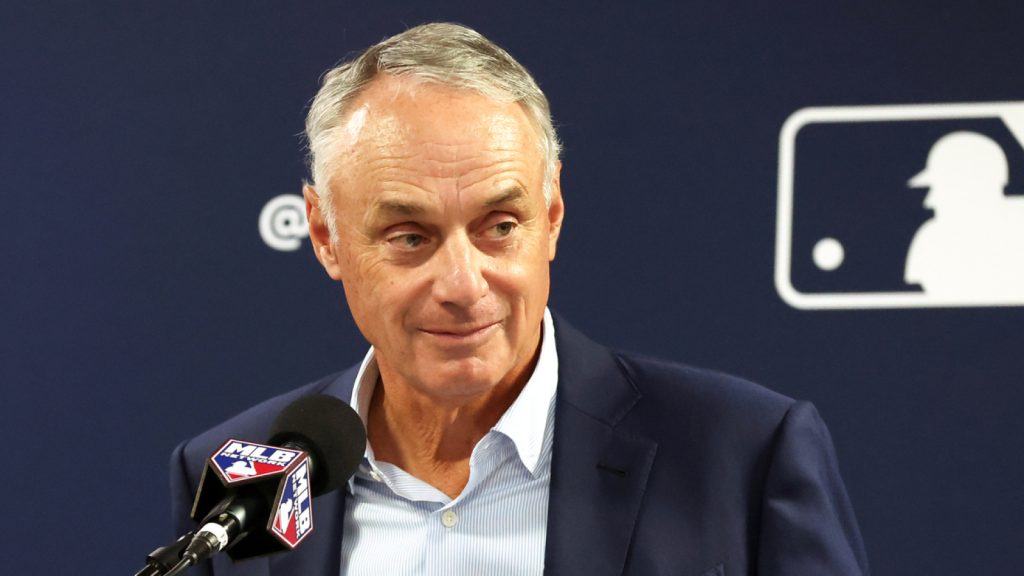A recently floated MLB rule could lead to massive shifts in the sport, arguably even bigger than the spate of changes the league ushered in 2023.
On Thursday, ESPN staff writer Jesse Rogers wrote about an idea being discussed in league circles to implement a mandatory inning-count for starting pitchers.
Per Rogers, starters would be required to pitch six innings unless they meet one of the following criteria: 100 pitches thrown, four earned runs allowed or suffering an injury.
Rogers notes that starting pitchers are averaging 5.25 innings per start. Complete games have become rare as teams prioritize maximum velocity over everything else.
By requiring starters to last six innings, they would need to be more selective when attempting to overwhelm batters with their velocity.
That could help with baseball’s problems with pitching injuries. In April, The Athletic’s Eno Sarris wrote, “Throwing hard is a direct stressor on the elbow, and throwing hard has been shown to lead to injury by multiple studies over the years.”
However, it isn’t a foolproof plan. If a team is desperate enough to get its starter off the mound, what would stop the pitcher from forcing an ejection?
It would also diminish the role relievers play.
Some nights, a starter simply doesn’t have his best stuff. It’s perfectly fine for a manager to call on a reliever to get out of a bases-loaded jam, for example. That would no longer be the case unless the starter meets his mandated thresholds.
With an inning minimum for starters, managers would be powerless to strategize their pitcher-batter matchups. The three-batter minimum for relievers has already limited them in that regard, but forcing a starter to go six innings would leave them with even less agency.
Another point the proposal fails to take into account is that fans enjoy seeing pitchers throw as fast as they can.
For instance, Pirates rookie pitcher Paul Skenes has become one of the league’s most popular players in part because of his electrifying fastball.
According to Rogers, some view the concept of an inning-minimum as ineffectual.
An assistant general manager told Rogers, “The genie is out of the bottle when it comes to max velocity. I’m not sure it can go back in, no matter the rules.”
If the six-inning minimum doesn’t change how hard pitchers throw, forcing them to pitch longer than they might otherwise could do more harm than good.

